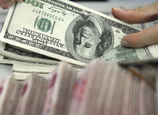
BEIJING, Nov. 12 (Xinhua) -- The Communist Party of China (CPC) has given ecological progress a more prominent position by incorporating it into the country's overall development plan together with economic, political, cultural and social progress.
Elaborated in one of the 12 parts of the report delivered by Chinese leader Hu Jintao to the 18th CPC National Congress, ecological progress is seen by the CPC as a long-term task of vital importance to the people's wellbeing and China's future.
"Harmony between man and nature" is a major theme in ancient Chinese philosophy, but it has been challenged by China's robust economic expansion over the past decades.
Clean water and fresh air have become luxuries in some parts of China. In some cities, people have taken to the streets to protest against chemical projects. Economic development nationwide is constrained by the shortage of resources, and people are increasingly worried about the environment.
Under such circumstances, the concept of ecological progress was advocated by Hu for the first time in the keynote political document at the 17th CPC National Congress in 2007.
It is not a term the CPC has coined simply to fill a theoretical vacancy, but rather a future-oriented guiding principle based on the perception of the extremely high price China has paid for economic miracles. In this sense, this notion will determine the country's future.
In the report to the 18th Party congress, Hu said, "Faced with increasing resource constraints, severe environmental pollution and a deteriorating ecosystem, we must raise our ecological awareness of the need to respect, accommodate and protect nature."
China should remain committed to the basic state policy of conserving resources and protecting the environment and strive for green, circular, low-carbon development, he said.
The report also pointed out the proper path for China's sustainable growth in the future with ecological progress as its core.
The Industrial Revolution contributed to the prosperity of some Western countries, but at the expense of the environment. These countries paid huge prices later in rehabilitating the environment.
The process had been duplicated in some parts of China over the past decades. Aware of the severity of the problem during the process, China is resolved to abandon the same old path that goes from environmental deterioration to rehabilitation, and it now advocates ecological progress to save energy, protect the environment and develop its economy at the same time.



















![]()
